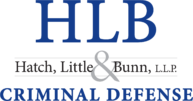Drug Possession
The Criminal Defense Team of Hatch, Little & Bunn handles all North Carolina drug related charges.
It is generally unlawful to possess controlled substances in North Carolina. A drug possession charge may range from misdemeanor possession of marijuana to felony possession with the intent to manufacture, sell or deliver a controlled substance, such as methamphetamines. Accordingly, these charges may range from as low as a class 3 misdemeanor to as high as a class C felony. The Criminal Defense Team of Hatch, Little & Bunn is prepared to defend you.
Often, drug charges arise out of substance abuse issues and can be managed. There may be the opportunity to secure a dismissal of the charge through negotiations with the State, which may include some form of drug treatment. At the same time, litigation may be necessary. The Fourth Amendment to the US Constitution grants you the right to be secure in your person, house, papers, and effects, against unreasonable searches and seizures.
The State will often rely on whether a particular search and seizure was lawful in order to make its case. The ‘lawfulness’ of a search often depends on the location and circumstances of the search. Different issues such as search incident to arrest, plain view, and probable cause must be evaluated. Suppression motions may be necessary to ensure that the Fourth Amendment to US Constitution is upheld and that due process is followed. Exclusion of unlawfully seized evidence may be the difference between ‘guilty’ and ‘not guilty.’
Possession charges are often coupled with “maintaining dwelling or vehicle for the use of controlled substances” charges. Codified under North Carolina General Statute 90-108(a)(7). These charges may rise to either the misdemeanor or felony level. Generally, if the maintenance is unintentional, it is a class 1 misdemeanor. If the State is able to prove beyond a reasonable doubt that the maintenance is intentional for the use of controlled substances, the crime rises to class I felony level. Fortification of the structure to impede the entry of law enforcement also raises the crime to the class I felony level. Punishment for maintaining a dwelling or vehicle is codified under North Carolina General Statute 91-108(b).
Marijuana, cocaine, heroin, opiates, LSD, MDMA, prescription drugs, and methamphetamine are just a few of the commonly possessed controlled substances. Controlled substances fall within six schedules. Take note that the State schedule does not directly mirror Federal DEA schedules.
Schedule I controlled substances are those which have a high potential for abuse, no currently accepted medical use in the United States, or a lack of accepted safety for use in treatment under medical supervision. Schedule I controlled substances are codified under North Carolina General Statute 90-89 and include drugs such as heroin, LSD, MDMA, peyote, and psilocybin (mushrooms).
Schedule II controlled substances are found under North Carolina General Statute 90-90. These drugs have a high potential for abuse but are currently accepted for medical use in the United States, or currently accepted medical use with severe restrictions. The abuse of these substances may lead to sever psychic or physical dependence. Schedule II includes drugs such as opium or opiate derivatives, codeine, hydrocodone, morphine, methamphetamine, and oxycodone.
Schedule III controlled substances are those which have a potential for abuse less than the substances listed in schedules I and II. Codified under North Carolina General Statute 90-91, these substances are currently accepted for medical use in the United States. Abuse may lead to moderate or low physical dependence or high psychological dependence. Ketamine and varying quantities of codeine fall within Schedule III controlled substances.
North Carolina General Statute 90-92 codifies Schedule IV controlled substances. These substances show a low potential for abuse relative to the substances listed in Schedule III. They are substances that are currently accepted for medical use in the United States and show relatively low dependence compared to schedule III controlled substances. Clonazepam, Diazepam, and Lorazepam are Schedule IV controlled substances.
Schedule V controlled substances are those that are accepted for medical use in the United States, yet have even lower levels of dependency than those of schedule IV. Schedule V includes low concentrations of codeine and a handful of other compounds or mixtures. Schedule V may be found under North Carolina General Statute 90-93.
Schedule VI controlled substances include marijuana. These are drugs that have low potential for abuse a low likelihood for development of dependency. These drugs are not currently accepted for medical use in the United States. Generally, further scientific study is necessary to determine evidence of their pharmacological effects. Other lesser known chemicals and chemical compounds are found within this North Carolina General Statute 90-94.
Contact experienced Raleigh drug crime defense lawyers for a free initial consultation
The Criminal Defense Team of Hatch, Little & Bunn. LLP represents defendants throughout North Carolina in prosecutions arising from alleged drug possession, sale or manufacture. Please call 919-714-4306 or contact us online to schedule a free initial consultation at our Raleigh office.

